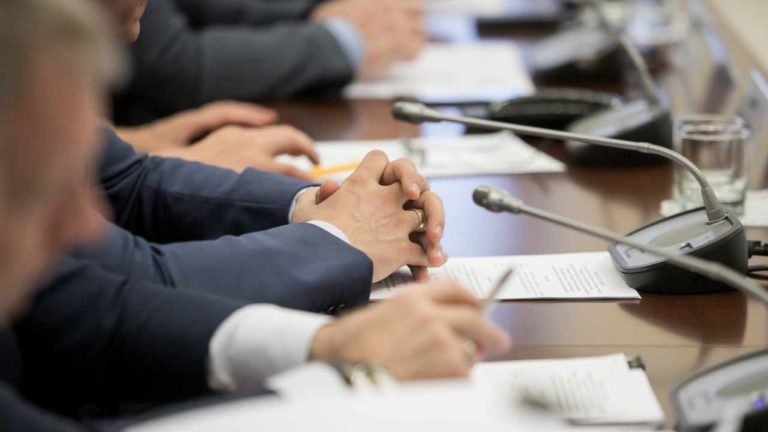
Both plaintiffs claim that Coinbase made fraudulent and deceptive representations regarding the company’s business.
The Coinbase drama, which started at the end of July, continues with new developments. Last week, former Coinbase Global product manager Ishan Wahi pleaded not guilty to two counts of wire fraud conspiracy and two counts of wire fraud in a Manhattan federal court. Wahi was arrested during his attempt to board a flight from the United States to India in May and accused of insider trading.
While the Wahis are central to two separate court cases, another two lawsuits appeared last week against the San-Francisco-based crypto exchange. Legal firm Bragar Eagel & Squire revealed that it would be suing Coinbase for making deceptive claims about its business practices. Pomerantz LLP has also filed a claim against the exchange, alleging that it is entitled to compensation for any losses incurred as a result of the defendant’s violations of federal securities laws.
In both complaints, plaintiffs claim that Coinbase made fraudulent and deceptive representations regarding the company’s business, operations and compliance efforts between April 14, 2021 and July 26, 2022. Coinbase reportedly refused to disclose that it permitted U.S. citizens to trade digital assets that required Securities and Exchange Commission (SEC) registration as securities despite its knowledge and complacency.
A hot season for enforcers, indeed — SEC has charged 11 individuals for their alleged role in creating t “fraudulent crypto pyramid scheme” platform Forsage. The charges were laid in a United States District Court in Illinois, with the SEC alleging that the founders and promoters of the platform used the “fraudulent crypto pyramid and Ponzi scheme” to raise more than $300 million from “millions of retail investors worldwide.”
While both the Lummis-Gillibrand crypto bill and several versions of stablecoin legislation seem to be delayed until fall, United States Senate Agriculture Committee chair Debbie Stabenow and ranking member John Boozman introduced the Digital Commodities Consumer Protection Act. The bill mandated the registration of a broad spectrum of market players by the CFTC and was met with wide approval within the crypto community.
Several large banks in Portugal have reportedly begun closing the accounts of cryptocurrency exchanges due to “risk management” concerns. There are at least four domestic cryptocurrency exchanges that have seen their accounts shut, including CriptoLoja, which was the first one to obtain a license to operate in the country. The closure of these accounts is seen as a blow to Portugal’s crypto-friendly approach, as authorities had previously rejected two tax proposals that might have been applied to investors making money from cryptocurrencies.
 Three different bills have been introduced in the U.S. this year to empower the Commodity Futures Trading Commission (CFTC) to be the primary regulator of the crypto spot markets. Lawmakers Want CFTC to Be Primary Regulator of Crypto Spot Markets Three bills have been introduced in Congress so far this year to make the Commodity […]
Three different bills have been introduced in the U.S. this year to empower the Commodity Futures Trading Commission (CFTC) to be the primary regulator of the crypto spot markets. Lawmakers Want CFTC to Be Primary Regulator of Crypto Spot Markets Three bills have been introduced in Congress so far this year to make the Commodity […]
U.S. Congress will need to step in to decide who gets crypto regulation bragging rights if the SEC and CFTC cannot resolve the issue internally.
A United States Senator Cynthia Lummis staffer believes that U.S. Congress will have to step in and resolve the dispute between the Securities and Exchange Commission (SEC) and the Commodity Futures Trading Commission (CFTC) regarding who regulates cryptocurrencies if the matter cannot be resolved internally.
The issue stems from 2014 when the CFTC first asserted jurisdiction over virtual currencies. This was later reaffirmed by a U.S. Federal Court ruling in 2018, which stated that CFTC had jurisdiction to prosecute criminals over fraud cases involving virtual currencies. However, it has been the SEC that has predominantly been investigating U.S.-based crypto exchanges and crypto assets to date.
On Aug. 3, Senators Debbie Stabenow (Michigan) and John Boozman (Arkansas) introduced the Digital Commodities Consumer Protection Act of 2022 (DCCPA). If the bill is passed into law by the U.S. legislature, the CFTC would be granted rights to regulate digital commodities.
Most notably, the DCCPA would class both Bitcoin (BTC) and Ether (ETH) as digital commodities and not securities. This is particularly significant because SEC chairman Gary Gensler recently said in an interview with U.S. business news channel CNBC that BTC is the only cryptocurrency he is comfortable with labeling as a commodity:
“Some, like Bitcoin — and that’s the only one I’m going to say because I’m not going to talk about any one of these tokens, but my predecessors and others have said they’re a commodity.”
But despite the tension, Lummis' staffer thinks the DCCPA bill has less than a 50% chance of being passed this year:
“The only way either bill would pass this year is if a catastrophic black swan event, like a major U.S. exchange collapsing, could rally lawmakers.”
The news comes after the SEC has begun investigating the $20 billion crypto exchange Coinbase, but Lummis' staffer also stated that every U.S.-based crypto exchange is under investigation in some form.
Related: Coinbase SEC investigation could have ‘serious and chilling’ effects: Lawyer
Under U.S. law, the Howey test determines whether a transaction constitutes an investment contract (security). The test states that an investment contract exists “when there is the investment of money in a common enterprise with a reasonable expectation of profits to be derived from the efforts of others.”
If ETH, or any crypto asset for that matter, is found to fall within this definition, then U.S.-based crypto exchanges would be illegally trading securities. The SEC recently listed nine crypto-assets as securities.

The push to regulate cryptocurrencies such as Bitcoin (BTC) and Ethereum (ETH) forges ahead as a bipartisan bill has been submitted to the United States Senate. According to a new Wall Street Journal report, Michigan Democrat Debbie Stabenow who chairs the Senate Agriculture Committee is joining with Arkansas Republican John Boozman to empower the Commodity […]
The post Bitcoin (BTC) and Ethereum (ETH) To Be Policed by CFTC Under New US Senate Proposal: Report appeared first on The Daily Hodl.

The bill defines digital commodities and requires registration of digital commodities platforms by the CFTC, with language that needs tightening.
United States Senate Agriculture Committee chair Debbie Stabenow and ranking member John Boozman introduced the Digital Commodities Consumer Protection Act bill on Wednesday. The bill has been expected for several months. Like the Digital Commodities Exchange Act (DCEA) introduced into the House of Representatives by members of the House Agriculture Committee in April, the new bill enlarges the role of the Commodity Futures Trading Commission (CFTC). The new bill is not the companion to the DCEA, however.
According to the summary, the bill’s definition of digital commodities “includes Bitcoin and Ether and excludes certain financial instruments including securities,” which are regulated by the Securities and Exchange Commission (SEC). The bill mandates registration by the CFTC of a broad spectrum of market players, such as “digital commodity broker,” “digital commodity custodian,” “digital commodity dealer” and “digital commodity trading facility,” which are collectively understood to be “digital commodity platforms.” Digital commodity platforms could be cross-registered with the SEC under the bill.
In addition, the bill would require the registration of “associated persons of digital commodity brokers and digital commodity dealers.”
The bill was met with wide approval within the crypto community, mainly on Twitter. Blockchain Association policy head Jake Chervinsky called it “a good bill overall & confirms a growing consensus for CFTC regulation.” Coinbase chief policy office Faryar Shirzad said he was “really pleased to see the introduction” of the bill.
1) I'm really excited to see @SenStabenow and @JohnBoozman introduce a strong bill to bring customer protection and federal oversight to crypto.https://t.co/AJAWjOHgDy
— SBF (@SBF_FTX) August 3, 2022
CFTC chair Rostin Behnam released a statement saying “new legislative authority is needed to clarify ambiguities and provide a regulatory framework to the digital commodity market.”
The general accolades were not without notes of caution. Coin Center released a blog post expressing gratitude for the "careful approach to developing this legislation" but cautioned:
“We have reservations about the breadth of definitions for regulated activities and we believe there is a need for a clearer exemption of persons engaged in constitutionally protected activities such as publishing software.”
The DCEA also addressed digital commodity registration but left it up to the platforms to register with the CFTC or remain subject to state registration.
Patrick Daugherty, head of the digital assets practice at Foley & Lardner and adjunct professor of Cornell Law School, told Cointelegraph in an email, “The legislation […] does not make clear that digital assets (other than Bitcoin and Ether) are not securities and are therefore covered by the DCCPA. It is therefore open to the SEC under its current leadership to continue to assert that virtually every digital asset is a security, which would be unfortunate.”
Daugherty also observed: “It is not clear to me that decentralized exchanges are, or are not, intended to be covered by this legislation. The platforms that are covered must be operated by "persons," but DEXes have no personnel.”
Related: US crypto regulation bill aims to bring greater clarity to DAOs
The bill enters an already crowded field, joining the DCEA and the more recent Lummis-Gillibrand Responsible Financial Innovation Act, which was introduced in June. Both bills give the CFTC a larger role in digital asset regulation. Notably, the DCEA and the present bill originate in the congressional agriculture committees, which are the bodies with supervisory powers over the CFTC.
It is known that Representative Maxine Waters, chair of the House Financial Services Committee, and Representative Patrick McHenry, the committee’s ranking member, are also working on crypto-focused legislation. Since the Financial Services Committee shares oversight of the SEC with the Senate Banking Committee, the Waters-McHenry bill is expected to be more favorable to the SEC.
The Digital Commodities Consumer Protection Act bill will undoubtedly go through revisions as it is considered in Congress. It is unlikely to come up for a vote in the current Congress due to scheduling issues.

Joe Cisewski formerly provided Pantera Capital with legal and regulatory guidance relating to the firm’s funds and investment advisors.
Commodity Futures Trading Commission (CFTC) commissioner Goldsmith Romero cited Joe Cisewski’s experience in digital assets as a key reason behind onboarding him as chief of staff and senior counsel.
Announcing the move on July 26, commissioner Romero pointed to Cisewski’s 14 years of experience working across the CFTC, Securities and Exchange Commission (SEC) and crypto venture fund Pantera Capital.
“Joe’s unique combination of public and private sector experiences will serve us well as we take bold steps to ensure the resilience of our markets, protect investors and market participants,” she said, adding:
“His fluency on digital-assets and other issues will be valuable as the Technology Advisory Committee embarks on its agenda later this year.”
Prior to this new role, Cisewski most recently served as the general counsel to Pantera Capital, which claims to have 100 venture investments and $5.1 billion assets under management (AUM).
He provided the firm with legal and regulatory guidance relating to the firm’s funds and investment advisors, while also engaging with regulators over Pantera’s projects and portfolio companies.
In May, Cisewski attended a roundtable between crypto industry professionals and the CFTC in which potential regulation relating to the clearing of margin products (including crypto) without a futures commission merchant (FCM) intermediary was discussed.
In his previous stint at the CFTC, Cisewski served as the senior special Counsel and policy advisor to former commissioner Mark Wetjen, who similarly to Cisewki, left the public sector to take up a role at major crypto exchange FTX as its head of policy and regulatory strategy late last year.
Alongside the SEC, the CFTC shares a major role in the regulation of crypto in the U.S., and its role could soon outweigh that of the SEC’s if the Responsible Financial Innovation Act tabled by crypto-friendly senators Cynthia Lummis and Kirsten Gillibrand is enacted next year.
The two senators have repeatedly said that most crypto assets would be classified as commodities, and should that hold true, it would effectively give the CFTC a broader jurisdiction over the sector than the SEC.
Related: SEC listing 9 tokens as securities in insider trading case ‘could have broad implications’ — CFTC
As previously reported, CFTC chair Rostin Behnam announced on July 25 that the regulator was expanding the scope of its fintech focused LabCFTC unit to fall under the Office of Technology Innovation (OTI).
Behnam stated that CFTC is ramping up its focus to provide “important regulatory protections” for commodities markets, including crypto.
“We are now engaged in a more proactive and comprehensive effort across the agency to regulate these markets with the tools currently available to us,” Behnam said.
 On Tuesday, a newly published report details that the cryptocurrency exchange Kraken is under federal investigation for allegedly violating U.S. sanctions, according to five people familiar with the matter. The unknown sources explained that the inquiry into Kraken started in 2019, and it’s accused of allowing users from sanctioned countries like Iran access to the […]
On Tuesday, a newly published report details that the cryptocurrency exchange Kraken is under federal investigation for allegedly violating U.S. sanctions, according to five people familiar with the matter. The unknown sources explained that the inquiry into Kraken started in 2019, and it’s accused of allowing users from sanctioned countries like Iran access to the […]